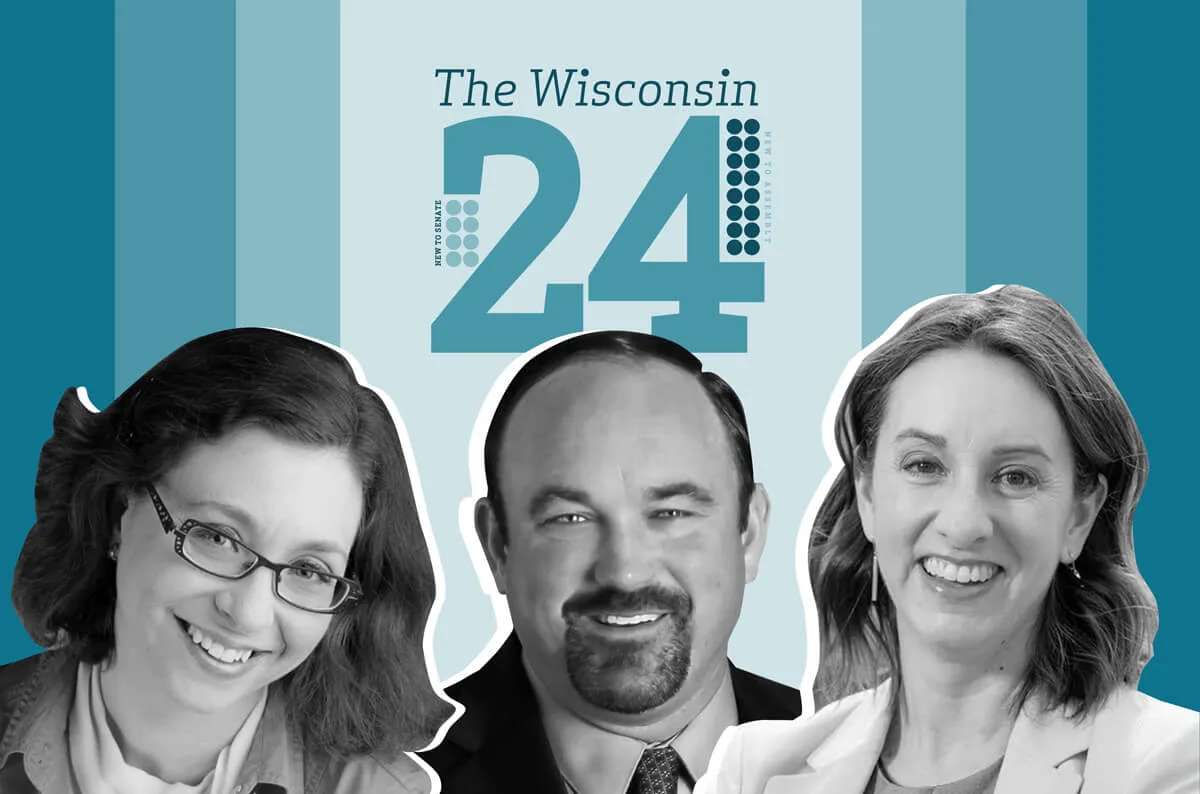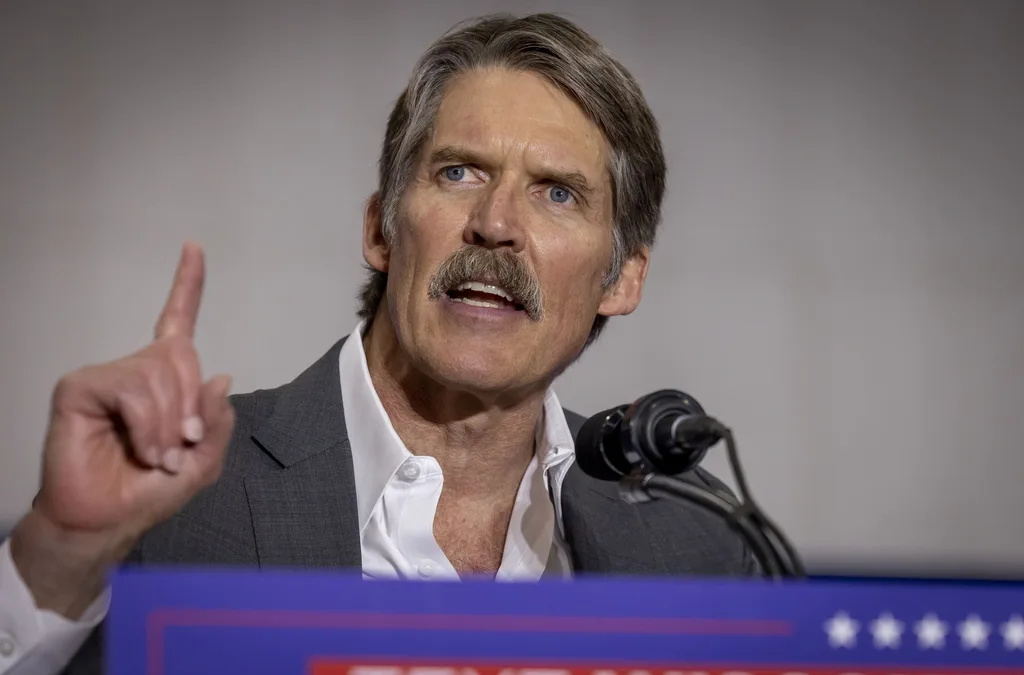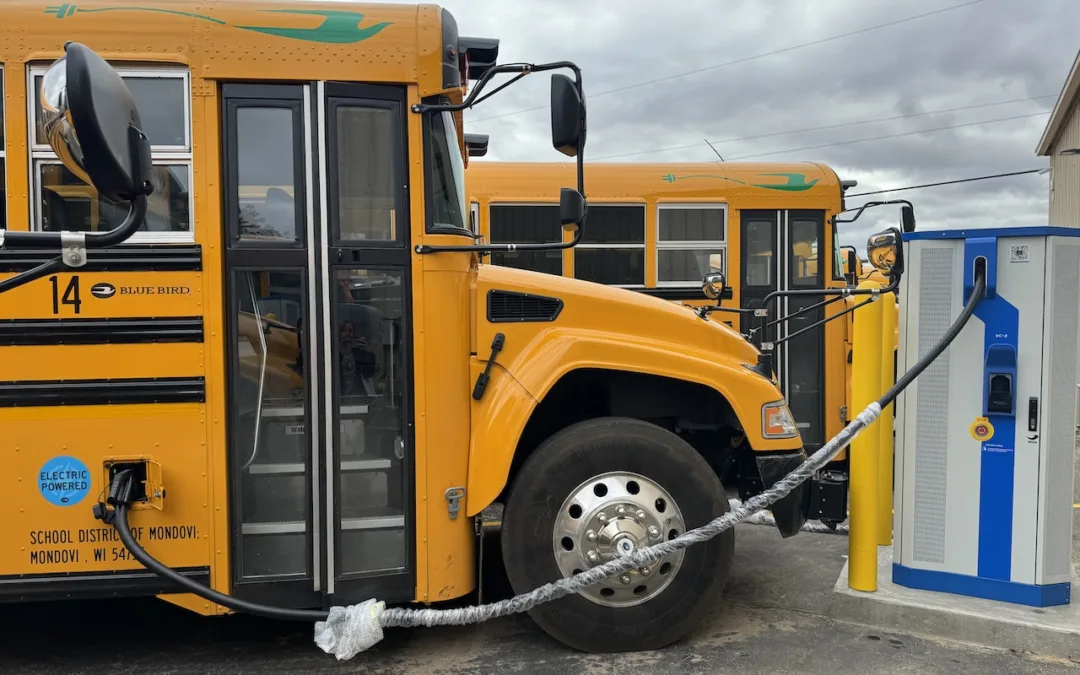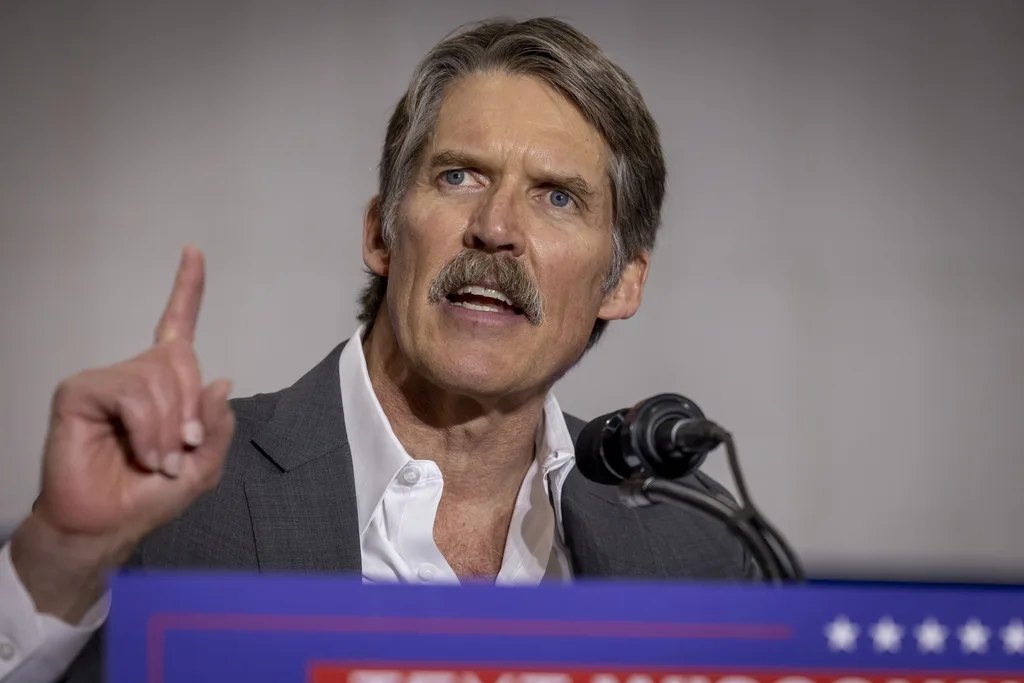
#image_title
#image_title
Snodgrass sees redistricting as top priority, while Cabral-Guevara and Moses point to managing the economic, healthcare fallout from COVID19.
Editor’s note: The Wisconsin 24 is a new series at UpNorthNews that will run over the next three weeks to introduce readers to the newly elected members of the Wisconsin Legislature. All told, there are 10 new Democratic members and six new Republican members to the Assembly. The Senate is welcoming three Democratic and five Republican members.
Rachael Cabral-Guevara had plenty on her plate before running for office.
The incoming Assembly member for District 55, Cabral-Guevara (R-Fox Crossing), is a registered nurse and owner of Nurse Practitioner Health Services, a teacher at University of Wisconsin-Oshkosh of 13 years and a mother of four. But her experiences in medicine, small business and education are what prompted her to run.
Nurse Practitioner Health Services is a clinic in Appleton that doesn’t accept health insurance but has the prices of all services offered listed on its website. A visit to her clinic costs $85. Lab work is $50 and a telehealth visit is also $50.
“What I find is that people don’t have a problem paying for healthcare as long as they feel that they’re getting value in the price that they’re paying,” she said.
She said upfront pricing is something all healthcare providers should be required to provide in Wisconsin.
She’s not keen on Medicare expansion or Medicare-for-all. She said in her experience running the clinic, people make better choices about their health if they have to pay at least some of the cost. Instead, her focus is on having pricing transparency and bringing down the cost of health care.
She wants the state to come up with a plan to get COVID-19 under control, while supporting workers and businesses that have been hit by the economic downturn.
“As a small business owner, I’ve been impacted significantly as many folks in the area have,” Cabral-Guevara said. “That’s going to be obviously the top [issue] because it’s going to be so impactful on so many different levels.”
One solution she suggested is greater prevention education, such as proper hand-washing. She has gotten some blowback because she has said cloth, or single-use paper masks, are not as effective as N95 masks. The masks are more effective at protecting against airborne viruses like the coronavirus but the Centers for Disease Control and Prevention only recommends N95 masks for healthcare workers.
“I’m really looking at N95s, seeing if there’s possibilities of increased manufacturing of these and really educating people on the different types of masks and how this one, if it’s fit right and sealed right, is going to be the best protection available,” she said.
At UW-Oshkosh, Cabral-Guevara said she’s seen over the years younger students coming to university lacking some basic skills, so she hoped to be a voice for K-12 education reform. But now with COVID-19, she is concerned that virtual learning is going to leave too many students behind. Broadband access also needs to be improved.
She pointed to private schools in her area that have managed to have in-person learning without major outbreaks of COVID-19. She said those methods could be copied at public schools, with support from the state.
But more broadly, Cabral-Guevara, who was the subject of negative attack ads during the Republican primary, would like to see greater civility and bipartisanship, especially to address COVID-19.
“We need to be working together to support our businesses, to be supporting our families that are struggling. And if we can’t come together politically and do that, then I’m very fearful of what the outcome is going to be.”
Clint Moses has worn many hats: he’s a father of four daughters, practicing chiropractor, former president of the local Rotary Club, past chair of the Community Foundation of Dunn County, and clerk for the local school board.
Soon, he will be a state representative, too.
Moses, a Republican who lives on a farm in the town of Menomonie, won election on Nov. 3 with 60.2% of the vote in the 29th Assembly District, which includes Menomonie, New Richmond, and various small towns and villages in between. He will be one of six new faces in the Assembly’s Republican caucus, filling a seat vacated by Rep. Rob Stafsholt (R-New Richmond), who left the Assembly to run for state Senate.
The three biggest issues currently facing the 29th District, Moses said, are the coronavirus pandemic, rural broadband access, and mental healthcare access. But first must come the fight against COVID-19, he said.
“Until we get [the pandemic] under control and get the numbers going the right direction, it’s going to be very, very difficult to achieve a lot of these other goals we have out there,” Moses said.
Moses said he does not support a statewide mask mandate or limiting businesses to try to fight the pandemic—two measures supported by 72% and 68% of Wisconsinites respectively, according to two October Marquette Law School polls.
However, Moses said he is disappointed the Republican-led Legislature and the Democratic governor have not been able to find any sort of bipartisan solution. Republicans have not passed any sort of legislation to fight the pandemic or help those affected by it in more than 210 days, yet they have repeatedly sued Evers to stop his actions to fight COVID-19.
“We need to work better with the governor,” Moses said. “The governor needs to work better with the Legislature as well. Since March, there really hasn’t been a lot of cooperation.”
Evers and Assembly Speaker Robin Vos (R-Rochester) haven’t spoken in six months. Moses described the dynamic as “cat and mouse” and “a blaming game.”
After the pandemic is contained, Moses said he wants to work with Democrats to expand broadband access, one of the rare issues both parties have found legitimate common ground on in recent years. About 410,000 Wisconsinites lack access to high-speed internet, and the federal government under President Donald Trump has largely left states to fend for themselves.
“I think that could be expanded fairly easily,” Moses said when asked about the state’s Broadband Expansion Grant program.
As a healthcare provider himself, Moses said he also wants to sponsor legislation that could expand mental health access in his part of the state, a bipartisan issue that has yet to find a bipartisan solution.
Republicans earmarked $15 million for a northwestern Wisconsin regional crisis center in the 2019-21 state budget, but Gov. Tony Evers vetoed the funding because it bypassed the standard approval process. A veto override failed on a party-line vote, and Republicans and Democrats have not been able to agree upon bills to add mental health beds ever since.
“Looking at the numbers, I think it financially makes sense to bring something to our area,” Moses said. “And humanitarian-wise, it’s just so much better than transporting someone outside of our area and expecting [family to] be able to visit them or support them while they’re going through treatment is kind of ludicrous as well.”
Representative-elect Lee Snodgrass knows that the 57th Assembly District was gerrymandered to favor Democrats. It was held by her predecessor, Amanda Stuck—another progressive woman—from 2015 until Stuck decided to run for Congress.
But while Snodgrass (D-Appleton) knows it could make holding her job more difficult down the line, one of her priorities in the upcoming legislative session is to make sure the redistricting process is done fairly. That’s because she believes that fair maps could lead to greater bipartisanship at the statehouse.
“What we’re seeing right now is clearly Republicans do not feel accountable to their voters so they’re not motivated to reach across the aisle. They’re not motivated to bring some of the Democratic ideas and Democratic bills to the floor as part of solutions for Wisconsin,” Snodgrass said. “First and foremost, we are going to try to make sure we are able to secure fair maps so that we can actually work in a bipartisan fashion.”
With the biennial budget process coming up, Snodgrass would like to see the state find ways to raise funds without leaning on taxpayers, including closing the “dark store loophole”, and accepting the federal government’s Medicare expansion.
“We’ve talked about that for years. It’s money sitting on the table,” Snodgrass said. “I’m sitting right here in the middle of one of Wisconsin’s hot spots for COVID[-19] so I want to make sure as many people are covered as possible.”
She’d like to see those funds provide relief to municipalities and school districts that are being hit hard by the pandemic.
“Right now we really can’t raise taxes on people. People are struggling. What we have to do is find money elsewhere instead of further putting that onto the taxpayer,” she said. “I’m a huge advocate of state government. I believe we elected our municipal leaders to do a job. We need to stop giving them unfunded mandates without supporting them. They’re as strapped as anyone else during this COVID crisis.”
With Democrats remaining the minority party, none of this is going to get done without bipartisanship. Snodgrass said that she’s open to working with Republicans and when that doesn’t work, “I also know it’s going to take some sharp elbows.”
“There has been some traditional resistance on both sides. It’s just very entrenched,” Snodgrass said. “Hopefully some fresh voices and some fresh faces can start to move that forward.”
Politics

Eric Hovde’s company exposed workers to dangerous chemicals, OSHA reports say
A Madison-based real estate company run by Wisconsin US Senate candidate Eric Hovde settled with the Occupational Safety and Health Administration...

Plugged in: How one Wisconsin school bus driver likes his new electric bus
Electric school buses are gradually being rolled out across the state. They’re still big and yellow, but they’re not loud and don’t smell like...
Local News

Stop and smell these native Wisconsin flowers this Earth Day
Spring has sprung — and here in Wisconsin, the signs are everywhere! From warmer weather and longer days to birds returning to your backyard trees....

Your guide to the 2024 Blue Ox Music Festival in Eau Claire
Eau Claire and art go hand in hand. The city is home to a multitude of sculptures, murals, and music events — including several annual showcases,...



